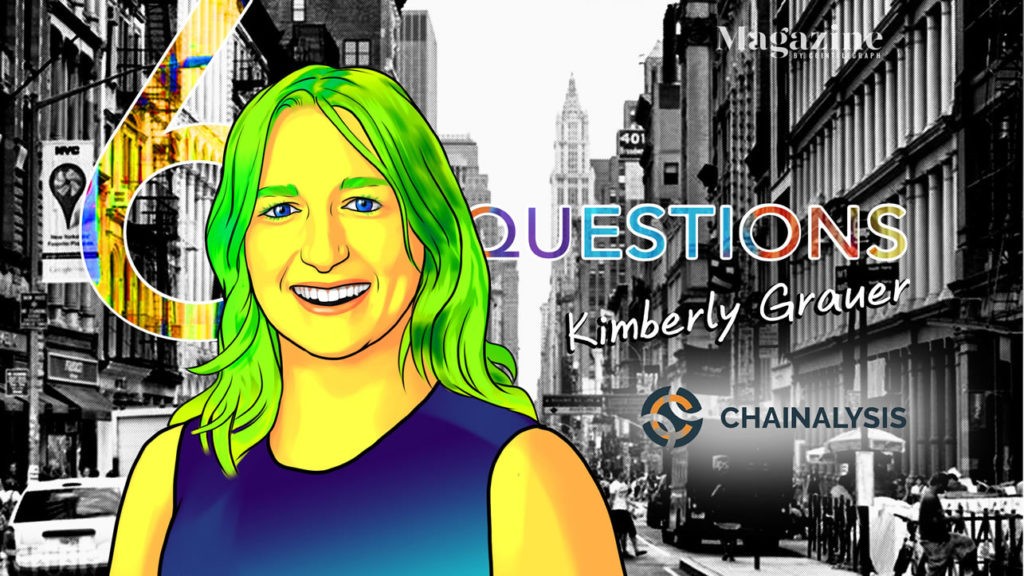Each week we ask the buidlers in the blockchain and cryptocurrency sector for their thoughts on the industry… and we throw in a few random zingers to keep them on their toes!
Each participant then gets to remove one blockchain question — and a personal one — and they can substitute in two of their own for the next victim.
This week our 6 Questions go to Kimberly Grauer, Head of Research at Chainalysis.
Kim examines trends in cryptocurrency economics and crime.
She was trained in economics at the London School of Economics and in politics at Oxford University.
Previously, she explored technological advancements in developing countries as an academic research associate at the London School of Economics, and was an economics researcher at the New York City Economic Development Corporation.
1 — What has been the toughest challenge you’ve faced in our industry so far?
The toughest challenge has also been the most rewarding: working not only in a new industry, but at start-up in that new industry, where things can evolve so quickly. Now, Chainalysis is a “high growth enterprise,” but for a long time we were just a few people in a coworking space.
Our audience and their level of cryptocurrency fluency has changed so rapidly that we are constantly evaluating what research to focus on and how to best communicate our research externally given these rapid changes
2 — What’s the most interesting place you’ve ever visited, and why?
Oaxaca, Mexico! I actually just got back from there a few days before this whole global pandemic thing. It’s a beautiful city, with an awesome pace. Very colorful and vibrant with incredible food and architecture. I will be retiring there one day.
3 — What’s a problem you think crypto has a chance to solve, but hasn’t been attempted yet?
I just finished a big report on cryptocurrency crime and am really hopeful around the ability to better understand how to fight money laundering through radical transparency such as that afforded by public ledgers.
It is absolutely fascinating to be able to point at a few addresses and observe money laundering happening in real time, and to learn from what we see to end that activity. Money laundering using fiat is so siloed and hard to track across borders that it’s really hard to see the big picture.
4 — What talent do you lack, and wish you had? How would you use it if you had it?
I am not good at The Twitter. Coming up with fun, hot takes for a social media presence is so far from happening for me. I think that social media is a great way to engage with people so I do wish that came a bit more naturally to me, although it does have its drawbacks.
5 — Name the 5 things you’ll miss most over the next few weeks if we’re all trapped in our homes!
I am most literally going to miss the springtime! I will also miss hiking, going out to restaurants in my neighborhood, taking my dog for a walk, taking my husband for a walk, going to movies, just the boring basic stuff!
6 — What do you think will be the biggest trend in blockchain for the rest of 2020?
I think 2020 will be all about observing how cryptocurrencies respond to a recession – assuming one will happen. This is the age old question we have always asked and now we finally get to see!
I will be watching this very closely, monitoring the geographic trends, changes in exchange volumes, pretty much any sign to help us understand what kind of asset crypto really behaves like.
Kim substituted questions 4 and 6 with two new ones for our next buidler…
What were the biggest crime trends you saw in 2019/20?
What do you like to do in your free time?
Editorial Staff
China’s 100K TPS blockchain, Japan’s Minna Bank eyes Solana: Asia Express
